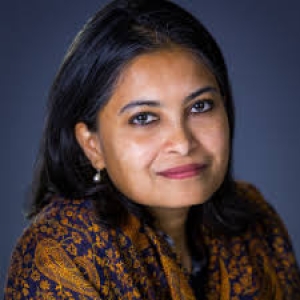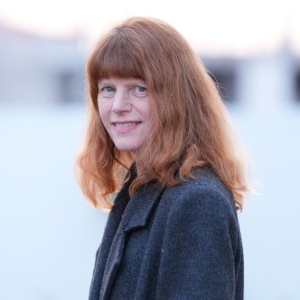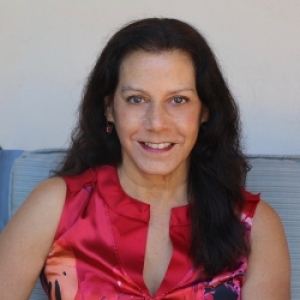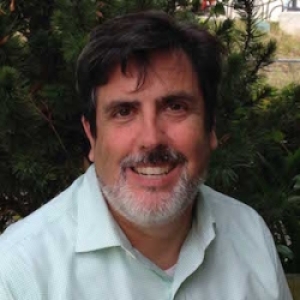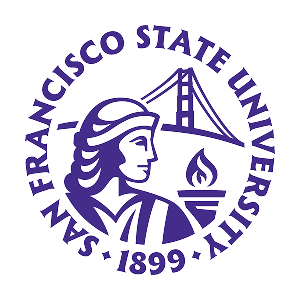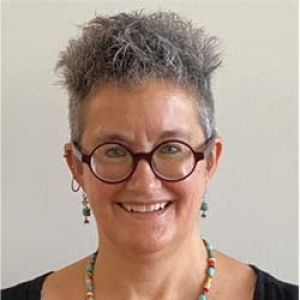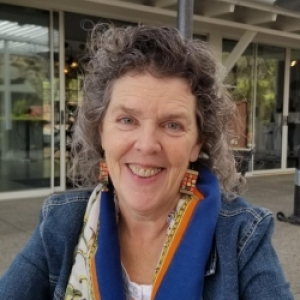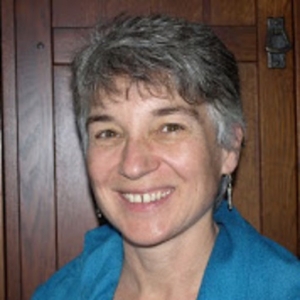Bio:
Academic and Professional Pursuits in Technology and Education
My scholarly and vocational endeavors are deeply rooted in both the academic and professional spheres.
Academic Focus: I am dedicated to advancing the field of Artificial Intelligence (AI) and Machine Learning (ML), with a particular emphasis on Generative AI and the proliferation of open-source web development methodologies.
Professional Concentration: My professional activities are centered around a suite of innovative technologies, including Gemini, Vertex AI, ChatGPT, Copilot, Azure DevOps, and Microsoft SharePoint Online. I am adept at developing robust applications using both Visual Studio and Visual Studio Code, and I actively engage with the Microsoft Power Platform to enhance business solutions.
Teaching Engagements:
- Fall Semester 2024: ISYS 475 - Open-Source Development I instruct a course that delves into the design and implementation of business applications leveraging the MEAN stack (MongoDB, Express, Angular, Node.js), with a focus on cloud-based deployment. The curriculum integrates Generative AI to enrich the Q&A experience within applications.
- Spring Semester 2025: ISYS 573 - Gen AI and LLMs for Business. This course examines the technologies behind Generative AI (Gen AI) and Large Language Models (LLM) to plan and implement innovative business solutions.
- Fall Semester 2025: ISYS 574 - AI/ML for Business Applications This course explores the practical applications of AI, with a focus on deep learning and its culmination into Generative AI. Concurrently, it covers ML techniques, emphasizing models pertinent to both supervised and unsupervised learning paradigms.
Latest Award: Foster City AYSO - Referee of the Year 2023
Education:
MBA, San Francisco State University, 1972
PhD, UC Berkeley, 1975
ISYS 475: Building Web Applications with Open Source Software and Generative AI
Fall 2024
This course covers the theory and practice of the design and development of a web-based business application using open-source software. Building an entire web application from front to back with just one language is now possible, using JavaScript. The MEAN stack is comprised of the best-of-breed open-source technologies in this arena. We will use MongoDB for the database, Express for the server-side web-application framework, Angular for the client-side framework, and Node.JS for the server-side platform. In this course, you will also learn how to host your code and web application in the cloud using Git. Finally, you are going to learn how to access an API to create the next generation of AI-enabled applications using Angular.
This course introduces each of these technologies, as well as how to get them working well together as a stack. Throughout the course we build a working application, focusing on one technology at a time, seeing how they fit into the overall application architecture. So it is a very practical course designed to get you comfortable with all of the technologies and how to use them together as well a learn how to host applications in the cloud using Google App Engine. A common theme running through the course is best practice. This course is a springboard to building great things with the MEAN stack, so there is a focus on creating good habits, doing things the right way, and planning ahead.
ISYS 573: Gen AI and LLMs for Business
This course is an elective for Bachelor of Science in Business Administration: Concentration in Information Systems
Spring 2026
Zoom MeetingTime: T 6:30-9:15 PM
Virtual Office Hours: T 5:30-6:30 PM
Generative AI (Gen AI) and large language models (LLMs) are revolutionizing our personal and professional lives.
From supercharged digital assistants that manage our email to seemingly omniscient chatbots that can communicate with enterprise data across industries, languages, and specialties, these technologies are driving a new era of convenience, productivity, and connectivity. In the business world, Gen AI automates a huge variety of menial tasks, saving time and improving efficiency: it aids in data analysis, automates content creation, and enhances personal experiences. Gen AI models generate entirely new outputs rather than simply making predictions based on prior experience. This shift from prediction to creation opens up new realms for business innovation. For example, while a traditional predictive model can spot excellent investment property opportunities on Zillow (using tools such as Zestimate and Zillow enhanced AI search), a Gen AI app can also determine the likelihood that a property with certain characteristics will become available or what renovations and improvements will enhance the value of a property offering recommendations based on best practices gleaned from thousands of similar cases. Large language models (LLMs) are deep neural network models that have been developed over the past few years. LLMs have remarkable capabilities to understand, generate, and interpret human language. The success behind LLMs can be attributed to the transformer architecture which underpins many LLMs, and the vast amounts of data LLMs are trained on, allowing them to capture a wide variety of linguistic nuances, contexts, and patterns that would be challenging to manually encode. This course provides an in-depth study of business oriented LLMs. It also focuses on the implementation of LLMs in different business contexts with sample business use cases. In addition, it covers topics including working with text data, attention mechanisms, semantic search, prompt engineering, and moving Gen AI and LLMs into production.
The course applies Gen AI and LLMs to practical business problems such as customer service with question answering, sentiment analysis, and visual QA. The course also includes topics on surveying and comparing different Gen AI and LLM offerings as well as how do we create ethically responsible Gen AI and LLMs implementations in a business environment.
By the end of this course student will be able to:
- Understand the components of Generative AI and Large Language Models (LLMs)
- Understand the use of the Python language and the standard PyData stack: NumPy, SciPy, Pandas, and Scikit-Learn, as well as the use of Keras with TensorFlow for deep learning and Gen AI, and PyTorch for LLMs.
- Learn tools for building Gen AI and LLMs including jupyter notebooks.
- Understand the application of Gen AI and LLMs to solve business problems such as:
- Working with text data for sentiment analysis
- Implementing sophisticated question answering
- Analyzing visual data to detect aberrations.
- Learn how to implement Gen AI and LLM in a business environment.
- Learn how to design and implement AI Agents
- Learn how to design and implement Edge AI applications
- Understand the best ethical practices for implementing Gen AI and LLMs in a business environment.
ISYS 574: Artificial Intelligence (AI)/Machine Learning (ML) for Business Applications
This course is an elective for Bachelor of Science in Business Administration: Concentration in Information Systems
Fall 2025
Zoom Meeting Time: T 6:30-9:15 PM
Virtual Office Hours: T 5:30-6:30 PM
The primary objective of this course is to develop students’ knowledge of Machine Learning (ML) in a project-based way, touching on a broad range of topics from the basics to the latest deep learning techniques. In addition, it covers topics including supervised machine learning, unsupervised machine learning, semi-supervised machine learning, and reinforcement learning. The course applies ML models to practical business problems such as predicting the price of a car, determining whether a customer is going to churn, assessing the risk of not returning a loan, and classifying images of clothes. The course also includes best practices for using artificial intelligence and machine learning techniques to extract meaningful information from data to help form an ML-for-business mindset. The course presents ethical consideration in the application of AI/ML techniques in business.
You can get the syllabus here.
Upon completion of this course, students should gain an understanding of and ability to:
- Knowledge of essential AI concepts and technologies, such as machine learning, deep learning, and natural language processing.
- Understand the use of the Python language and the standard PyData stack: NumPy, SciPy, Pandas, and Scikit-Learn, as well as the use of other libraries, like Keras with TensorFlow for deep learning.
- Learn the use of tools for machine learning for business including jupyter notebooks using Anaconda and/or cloud platforms
- Understand the use of machine learning to solve the business problems such as:
- Predicting the price of a car
- Determining whether a customer is going to churn
- Assessing the risk of not returning a loan
- Classifying images of clothes
- Learn about data preparation and creating data sets for training, validation, and testing.
- Understand the use of unsupervised learning techniques in tandem with Python libraries to extract meaningful information from unstructured data.
- Understand the best practices for using supervised, unsupervised, semi-supervised, and reinforced machine learning and their application to business problems.
- Ethical framework for harmonized rules on Artificial Intelligence
- Understand the use of generative AI, a cutting-edge technology for generating synthetic (yet strikingly realistic) data using advanced machine learning algorithms.
